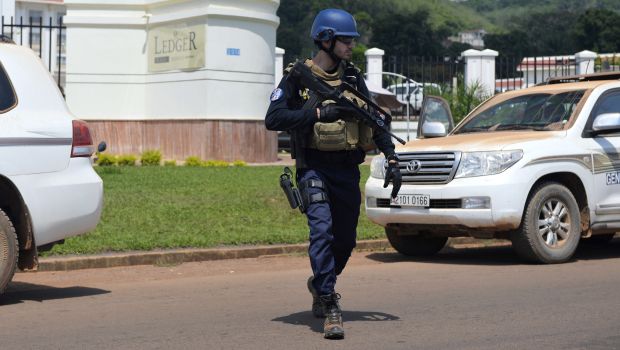
A member of the French Mobile Gendarmerie patrols in Bangui’s 1st district on April 9, 2014. (AFP PHOTO / MIGUEL MEDINA)
The 10,000 UN troops and 1,800 police will take over from 6,000 African Union soldiers—but not until September 15.
A separate 2,000-strong French force in the Central African Republic is authorized to use “all necessary means” to support the new UN force.
Central African Republic has been in chaos since a March 2013 coup, when mostly Muslim rebels seized power and launched a brutal regime. Christian militiamen attacked rebel strongholds in early December. As the rebel government crumbled in January, the Christian militiamen stepped up the violence, forcing tens of thousands of Muslims to flee.
The resolution expresses serious concern at multiple violations of human rights and humanitarian law committed by both former Seleka elements and anti-Balaka militia including killings, enforced disappearances, arbitrary arrests and detentions, torture, sexual violence against women and children, rape and attacks on civilians, “in particular but not limited to Muslims,” and attacks on places of worship.
The resolution “demands that all militias and armed groups put aside their arms, cease all forms of violence and destabilizing activities immediately and release children from their ranks.”
The Security Council wanted a strong mandate and the resolution authorizes the new UN force to protect civilians and support the disarmament of combatants and the restoration of peace and law and order. It also authorizes peacekeepers to help investigate violations of human rights and humanitarian law by armed groups including former Seleka rebel and the anti-Balaka.
While UN peacekeepers and police will not take over until September 15, the resolution immediately establishes the UN mission, to be known as MINUSCA.
